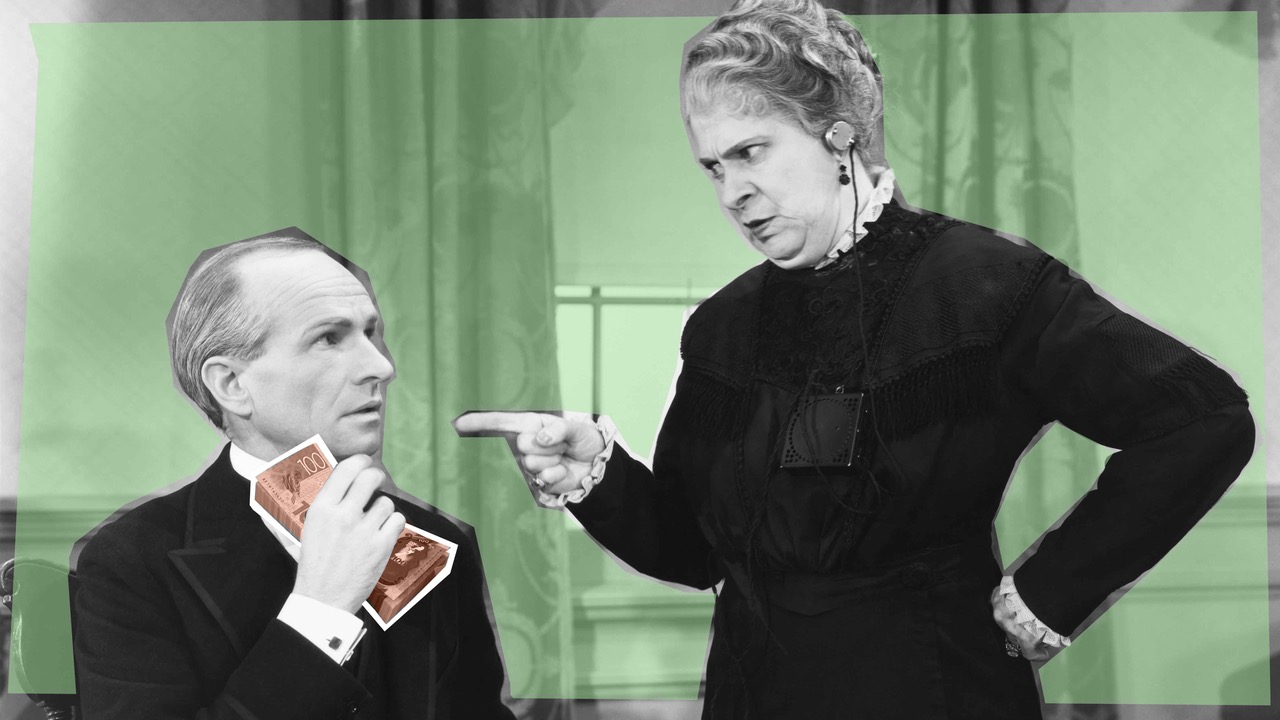Demonising the rich is a risky gamble
Graham Adams, Contributing Writer
4 May 2023
When Chris Hipkins became Prime Minister just over three months ago he promised to “reprioritise” policies to concentrate on “bread-and-butter” issues. However, it was soon clear that his reset was, in fact, designed to sideline contentious policies that had helped drive Labour’s polling down and Jacinda Ardern out of office.
So the thorny question of hate-speech laws has been passed on to the Law Commission; the RNZ-TVNZ merger has been ditched; and the income insurance proposal delayed. Three Waters has been rejigged (albeit leaving co-governance, the most contentious part, intact).
Why, then, would Revenue Minister David Parker and Hipkins decide that it would be a good idea, less than six months before the election, to draw attention to the possibility of introducing some sort of capital gains or wealth tax even as they both insist they have no firm plans for one? Such taxes have been among the most vexed policies in New Zealand’s recent political history.
The debate has been sparked by the release in quick succession of three reports on tax — compiled by Treasury, Inland Revenue and Sapere Research. The most inflammatory was IRD’s High-Wealth Individuals Research Project, which was commissioned in 2021 and investigated 311 of New Zealand’s richest families. It has been met with robust criticism, including by prominent economists, on a number of grounds. These include the unusual treatment of unrealised capital gains as “economic income”, and the fact asset prices had been dramatically fattened by the extravagance of financial policy during Covid, thus severely distorting the wealth figures for that period. Nevertheless, it has generated widespread publicity for the claim that the ultra-wealthy pay less than half the rate of tax paid by median-income households.
Hipkins has promised there will be no new taxes instituted this term and that voters will be told of any relevant plans before the election. But how does this policy striptease fit with his earlier intention to offer Opposition politicians and critics a smaller target to attack in the run-up to the election?
The short answer is it doesn’t. In fact, it does exactly the opposite. And the reason for such a radical departure from Hipkins’ earlier strategy may be because Labour doesn’t have many avenues to shore up its support in an election year.
After all, it’s clear the government can’t easily rely on much of its record as a springboard for new policy promises given its manifest failures in areas such as the cost of living, health, crime, homelessness and education. What’s more, Hipkins is very keen for voters to forget he was ever part of Ardern’s government — despite the fact, as Newstalk ZB senior political correspondent Barry Soper put it colourfully this week, he was “a sous-chef in Ardern’s kitchen Cabinet” for five years.
The truth is that Labour’s most consistent achievement in office has been to steadily — and often stealthily — expand Māori influence in an array of legislation and policy that ranges from Three Waters and health to education and local government. But Labour is rightly wary about promoting this part of its record because it has never had a mandate for much of its push towards co-governance. And, as Hipkins knows well, those policies are profoundly unpopular among a large number of voters.
With such constrained campaign choices, Hipkins and Parker appear to have opted for a tried-and-true tactic that rulers around the world have used for millennia in a crisis — namely, demonising a section of the community and exploiting the division for political gain. Selecting a particular group to blame for society’s problems has a long (and very dishonourable) lineage. And at a time when many people are financially stretched, who better to demonise than the very rich? In short, the temptation of setting the have-nots against the have-lots appears to have been irresistible to Hipkins and Parker despite the very obvious dangers.
David Parker made it clear in his speech at Wellington’s Victoria University last week who exactly IRD’s deep-dive into the business affairs of the wealthiest was designed to appeal to — and the divisiveness he was hoping to create: “Our citizens like tradies, nurses, school teachers, hospitality workers, hairdressers, cleaners, engineers and small business owners all pay a much higher effective tax rate than their wealthier fellow Kiwis.”
Hipkins and Parker have no doubt gambled that, by seeding hostility towards the rich, a chunk of swing voters will find it distasteful to vote for National or Act as champions of the wealthy. Certainly, it is extremely difficult to make sense of Parker’s and Hipkins’ bizarre show-and-don’t-tell routine in any other way. They both know that proposing any sort of capital gains or wealth tax — or even hinting at one — is politically dangerous, if not suicidal, but they must have judged that, having publicised the report, they were obliged to at least show themselves to being open to offering a remedy.
Ardern made it clear in 2019 that she knew just how profoundly unpopular a capital gains tax was. She said that despite genuinely believing there are “inequities in the tax system that a capital gains tax could have helped to resolve”, and her party campaigning on it for a decade, “Under my leadership, we will no longer campaign for, or implement, a capital gains tax — not because I don’t believe in it, but because I don’t believe New Zealand does.”
Hipkins and Parker have seen the debate play out at close quarters over many years. They were both in Parliament for the 2011 and 2014 election defeats in which a capital gains tax was a cornerstone of Labour’s campaign. They were also there for 2017’s campaign in which Ardern made a “captain’s call” that could have put a capital gains tax back on the table, before she retreated in the face of a ferocious backlash. And in 2019 they witnessed her permanent backdown after the Tax Working Group chaired by Sir Michael Cullen recommended implementing such a tax.
The fact that nothing has changed since 2017 or 2019 that would make a capital gains or wealth tax any more palatable to the public has pundits scratching their heads about what Labour is up to. Parker himself conceded last week that he didn’t necessarily think it would be easier to sell a capital gains tax now than in 2017, even with the evidence from the IRD report.
It would not be surprising if Labour is looking to use the report’s findings as a way to create a cast of villains for a “fairness” narrative that will allow it to pitch Hipkins as a supposed working-class boy from the Hutt against Luxon as a rich-prick businessman. An integral part of that push would see Labour heavily advertise the help it has given poorer New Zealanders by having raised benefit payments and the minimum wage while painting National’s and Act’s welfare policies as punitive.
Nevertheless, the new focus on who pays tax and how much may turn out to be a double-edged sword for the government as the public digests the information in the three reports. Who knew that a third of households receive more from the government in tax credits and benefits than they pay in tax? Who knew the ultra-wealthy pay such huge amounts of tax in dollar terms? Or that those earning over $180,000 (less than 2 per cent of all taxpayers) pay 9.3 per cent of all income tax?
There may be an initial burst of enthusiasm for soaking the rich until it dawns on middle-income earners in particular that they might be among those caught by a capital gains or wealth tax. That change in sentiment was evident after the Cullen report was published in 2019, when even The Spinoff’s enthusiasm for a capital gains tax waned once managing editor Duncan Greive and others realised it would hit their own start-ups and investments. The Spinoff went from asserting that “Tax Is Love” to a markedly cooler position.
The panellists on Newshub Nation in the weekend were clearly perplexed about Labour’s intentions. Journalist Janet Wilson said she found Hipkins’ and Parker’s move “really interesting because it’s quite dangerous for Labour… How many elections now have they taken a CGT to and said: ‘This is our baby. This is important. This will lead to the breaking-down of the inequality that we see’ — and then running away from it? It could be potentially dangerous for them to be trotting it out again.”
She suggested Labour was “flying a kite”, which she thought it would follow up with intensive polling to gauge public reaction to see whether the topic would “rark the nation up”. If it didn’t become the hot-button issue the government was hoping for, it could quietly back away. However, if this was the intention, party strategists have failed to appreciate that this is not a kite that can be reeled in easily or safely now that it is airborne.
In fact, Hipkins and Parker look to have blundered into a trap of their own making because, even if Labour firmly rejects a wealth or capital gains tax before the election, their likely coalition partners — the Greens and Te Pāti Māori — have made it clear they will be pushing hard for implementing them. The Greens will undoubtedly take a wealth tax proposal to the election, which they did in 2020 with a levy of one per cent on net assets beyond a threshold of $1 million. And John Tamihere, president of Te Pāti Māori, said last week that a non-negotiable bottom line will be a “range of wealth taxes starting with a comprehensive capital gains tax”. Consequently most voters will see such taxes as being baked into any Labour-Greens-TPM coalition, no matter whether Labour claims to have backed away from them itself.
The success of Hipkins’ and Parker’s ploy hangs in large part on how accurately they have gauged the possibility of whipping up widespread hostility towards the wealthy. One fact alone seems to show that will not be an easy task: nearly 60 per cent of New Zealanders spend a total of $1.5 billion a year on Lotto in the hope of becoming wealthy themselves. Clearly, the majority of citizens don’t have a moral objection to being rich. And it’s a safe bet they would object vociferously to being taxed on that windfall.
Meanwhile, Chris Hipkins and David Parker have handed the Opposition a hefty stick to beat them with until the election. And it is evident from watching government ministers squirm in Parliament this week when asked about their intentions on tax that National and Act will continue to take great pleasure in wielding it.
Graham Adams is a freelance editor, journalist and columnist. He lives on Auckland’s North Shore. To receive pieces like this in your inbox subscribe to our newsletter.





